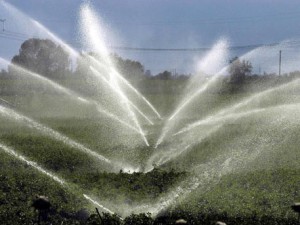
Monday, May 22nd, saw the publication, in the Government Gazette, of a long awaited ministerial decision titled: Approval of general rules on the costing and pricing of water services. Methods and procedures for cost recovery in water services.
Sais decision approves, with small adjustments and revisions, a draft issued and set for public consultation in August 2016, against which objections and reservations have publicly been expressed by Savegreekwater, as well as several other interested parties.
Through this Decision (nr. 135275, GG Β1751) water services users will be from now on burdened with paying the so called Recovery Costs of said services. Water has become a commodity, while water services companies will not differ anymore to any private profit-oriented and money-grabbing enterprise, despite them being constitutionally considered public services.
Specifically: the pricing of water services, contrary to the stipulations of Decision 1906/2014 of the Council of State, will aim to covering all costs of the company providing these (art. 9.1). Such pricing will include following items:
A’ Financial Cost (art. 4 and Annex Ι): this will include the cost of the invested capital, based on the annual depreciation of the provider’s assets; alternative use cost based on the profits the invested capital would yield if used for other purposes; operation cost, based on both standard and extraordinary operation expenses; maintenance cost; and management cost which includes the fees of any third parties. If water has to be transported to an arid area the users will be burdened with the extra cost, unless a state subsidy is available. All this leads to water services users in Greece being asked not only to pay once more for water services infrastructures and network, which have been paid through taxation both by this and several previous generations (this has happened several times in the near past) but also to cover any sums a water company will claim (with hindsight) as loss of profit for having its capital used to supply water instead of having been invested in some other “profitable” activity. That such activities may include absolutely anything has been proved by EYDAP’s contribution to last year’s capital increase of Attica Bank: this led to EYDAP losing € 17 million out of 20. As an addition the financial cost includes a “reasonable return” of private funds invested with EYDAP and/or EYATh: for the nth time the Greek Government interprets private enterprise as state guaranteed profits.
B’ Environmental cost (art. 5 and Annex ΙΙ), which, among others, will be imposed also on the occasion of a negative chemical condition of subterranean water deposits due to non-natural (sic) causes. Everyone knows of the Government of Greece being hesitant to impose fines on polluting businesses, but someone has to pay the cost, and the users of water services may prove an easy target.
C’ Resource cost (art. 6 and Annex ΙΙΙ) which includes costs incurred due to the bad management of water resources. No penalty for those responsible for such bad management is imposed. The environmental cost and the resource cost added up (art. 7) will constitute the Environmental Fees: such shall be written “clearly and explicitly” on the bill (as are the fees paid by energy users for similar reasons and ending up becoming subsidies to private businesses) and will be transferred, almost in its entirety, to the infamous Green Fund with the aim of being used, under quite general terms, in actions dealing with water. Vulnerable groups may be excluded from paying said environmental fees as are those entities that “through correct management of water resources contribute to the maintenance and/or improvement of the condition of such; these include enterprises dealing with waste re-use (there is a quite small number of such businesses in Greece, all belonging –directly or indirectly- to the richest 0,1%; q.e.d.)
Art. 9 (General pricing procedures) provides for an increase on bills if costs’ cut down does not by itself suffice for covering costs recovery. In order to convince the users that such increases will not be excessive it is stated that such cannot be higher than the GDP increase, or can be as high as double the GDP increase in certain cases (as if GDP fluctuations had anything to do with our personal income!)
Art. 14, titled “General Rules and Directions for the Improvement of Water Services”, actually lists conditions under which increases in water prices can be imposed.
As per the above this Decision proves that the negative results of water services privatization cannot only be reached through the transfer of water companies shares to private entities but can also be achieved by a State that long ago has stopped caring for the interests of its people preferring rather to protect and increase the profits of a small minority.
In addition there is recent Law 4472/2017 dealing (once more) with the transfer to the new Superfund of assets of the Greek State, among which the shares of EYDAP and EYATh: this law continues on the path of applying policies that have continuously been proved to be disastrous for the vast majority of the inhabitants of this country by targeting in general our economic and social well being and in particular our/everyone’s Right to Water.
This decision has been approved by ministers Panagiotis Skourletis (Interior), Dimos Papadimitriou (Economy and Progress), Eukleides Tsakalotos (Finances), Andreas Xanthos (Health), Christos Spirtzis (Infrastructures and Transport) and Evangelos Apostolou (Agriculture & Food) and (Deputy Minister of Environment and Power)



